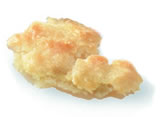Days of Unleavened Bread
Introduction
 God's purpose for mankind is to reproduce His own kind, to fashion in each person His holy character. God gave to Israel seven annual festivals which reveal the steps to the fulfillment of that Plan. With this inductive study guide, you'll learn about this second step in that plan—the Days of Unleavened Bread, the second festival of the year.
God's purpose for mankind is to reproduce His own kind, to fashion in each person His holy character. God gave to Israel seven annual festivals which reveal the steps to the fulfillment of that Plan. With this inductive study guide, you'll learn about this second step in that plan—the Days of Unleavened Bread, the second festival of the year.
Evidence From Scripture
EXODUS 12:15-17 "'Seven days you shall eat unleavened bread. On the first day you shall remove leavened bread from your ….'"
1. How long is the festival? Is there significance to the number 7?
2. What was the penalty for eating leavened bread? Does this mean it was an important festival to God?
3. Just what is a "holy convocation"?
4. What does the feast commemorate?
5. Did God intend for this festival to be observed down through the ages? Was this feast continuing to be observed by Jesus' apostles in the New Testament? Read Acts 20:6 and comment.
I CORINTHIANS 5:7 "For indeed Christ, our Passover, was sacrificed for us. (8) Therefore let us keep the feast, not with old leaven, nor with the leaven of malice and wickedness, but with the un-leavened bread of sincerity and truth."
6. What does leavening symbolize?
7. Why is leavening used to represent wickedness or sin? In what way(s) is sin like leavening?
8. What does unleavened bread symbolize?
9. How is "sincerity and truth" like unleavened bread? Is there a connection with the obedient worship of God? Read John 4:23-24 and comment.
10. For the Christian, what does this feast represent?
11. Is the analogy true that as Israel left Egypt so must a Christian depart from sin? Read II Timothy 2:19.
II TIMOTHY 2:19 "Nevertheless the solid foundation of God stands, having this seal: The Lord knows those who are His," and "Let everyone who names the name of Christ depart from iniquity."
12. Is it God's purpose for, us to become His children, to be as righteous, to be like God and not sin? Read I John 3:1-10 and comment.
HEBREWS 12:1-4 ..."let us lay aside every weight, and the sin which so easily ensnares us, and let us run with endurance the race that is set before us, (2) looking unto Jesus, the author and finisher of our faith.... (3) For consider Him who endured such hostility from sinners against Himself, lest you become weary and discouraged in your souls. (4) You have not yet resisted to bloodshed, striving against sin."
13. In Exodus 12:15, we read that Israelites had the task of putting out leavening from their homes. Are we required to put forth effort to put sin out of our lives? What does "striving against" mean?
EXODUS 13:8-9 "And you shall tell your son, in that day, saying, 'This is done because of what the Lord did for me when I came up from Egypt.' (9) It shall be a sign to you on your hand and as a memorial between your eyes, that the Lord's law may be in your mouth; for with a strong hand the Lord has brought you out of Egypt."
14. Could Israel leave Egypt by its own power, or did God have to intervene?
15. How is this festival a "sign"?
16. What is the relationship of this festival to God's law? Can we leave sin by our own power? Does God promise to help anyone wanting to leave the slavery to sin? Read Romans 8:13, I Corinthians 10:13 and Hebrews 2:18 and comment.
ROMANS 8:13 "For if you live according to the flesh you will die; but if by the Spirit you put to death the deeds of the body, you will live."
I CORINTHIANS 10:13 "No temptation has overtaken you except such as is common to man; but God is faithful, who will not allow you to be tempted beyond what you are able, but with the temptation will also make the way of escape, that you may be able to bear it."
HEBREWS 2:18 "For in that He Himself has suffered, being tempted, He is able to aid those who are tempted."
Summary
1. What does God want us to understand and realize today from His Feast of Unleavened Bread?
2. What are common beliefs in society (including the religious community) regarding the keeping of the Days of Unleavened Bread and of the necessity of forsaking sin?
3. Explain your beliefs concerning the observance of this festival today. Do you think it should be observed both physically (by removing leavening from your living quarters) and spiritually (by striving to overcome sin)?

